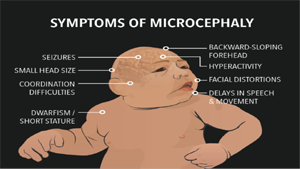Christopher
Labos is a Montreal doctor (Division of Epidemiology, Biostatistics
and Occupational Health McGill University )who writes about
medicine and health issues.
Mosquitoes
are the most lethal creatures on the planet. They kill millions
of people every year by spreading diseases like dengue, yellow
fever and malaria. Now mosquitoes (specifically the Aedes
aegyptii mosquito) are spreading the Zika virus, which
the World Health Organization says will infect three to four
million people by the end of this year. Mosquitoes are not a
summertime annoyance; they are a major public health problem.
Kill mosquitoes, and you save lives.
 You
can use larvicides to kill them before they grow up into blood-sucking
adults, but the mosquitoes develop resistance after a while.
You can use the mosquitofish, Gambusia afiniis, which
will happily devour any mosquito larvae it finds. Problem is
they will devour everything else, too, and can become invasive
pests wherever they are introduced. Or you can fight fire with
fire and get mosquitoes to kill mosquitoes.
You
can use larvicides to kill them before they grow up into blood-sucking
adults, but the mosquitoes develop resistance after a while.
You can use the mosquitofish, Gambusia afiniis, which
will happily devour any mosquito larvae it finds. Problem is
they will devour everything else, too, and can become invasive
pests wherever they are introduced. Or you can fight fire with
fire and get mosquitoes to kill mosquitoes.
Oxitech,
a British biotech company, has developed a genetically modified
mosquito; the second genetically modified animal to come into
being (the first being the genetically modified salmon last
year). The United States Food and Drug Administration has approved
the genetically modified Aedes aegypti for a field
test in the Florida Keys, where the Zika virus has spread into
the U.S.
The
mosquito works like this. Researchers inserted a gene into the
mosquito’s DNA that produces a protein called tetracycline
transcriptional activator variant (tTAV). The tTAV blocks DNA
transcription so that cells can’t function properly. The
mosquito dies because of a fatal flaw in its DNA.
When
these mosquitoes are released into the wild, they breed with
native mosquitoes and produce genetically flawed offspring that
don’t survive to maturity. Therefore, no new generation
and no new mosquitoes. No mosquitoes means no spread of Zika.
There
is concern that these genetically modified mosquitoes will bite
humans and transfer dangerous genes to people. This would make
a great movie plot, but it can’t happen in real life.
When
mosquitoes bite you, they can transfer bacteria or viruses into
your blood stream. That’s how you get diseases like malaria,
dengue or chikungunya. But mosquitoes don’t transfer DNA.
The issue has been studied in both humans and animals, and mosquito
bites are not a vector for DNA transfer.
Think
about it: You’ve been bitten hundreds if not thousands
of times by mosquitoes, and yet you have no mosquito DNA in
you. Nor do mosquitoes have any human DNA. If DNA were transferrable
via mosquito bites, you would think some would have made its
way into our genome over the millennia mosquitoes have been
feasting on our blood.
However,
the point is moot because the mosquitoes modified by Oxitech
don’t bite humans. Only female mosquitoes bite humans,
and these genetically modified mosquitoes are all males. Problem
solved.
There
is always the concern that these genetically modified mosquitoes
will have some unforeseen effects on the environment. But they
have been studied and compared to the unmodified mosquito and
found be identical in terms of number of eggs laid, the egg-hatching
rate, larval survivorship and many other parameters. They won’t
spread across the planet (the mosquito does poorly in temperatures
under 15°C, which is why Zika likely won’t affect
Canadians unless they travel to warmer climates).
Also,
these mosquitoes are not some new invention. They were developed
in 2002 to fight dengue fever, but have now been repurposed
because of the Zika outbreak. They have been subject to field
trials in Brazil, the Cayman Islands and Panama and studied
for more than a decade.
But
most importantly, these are not super mosquitoes. They are regular
mosquitoes with a programmed genetic defect. Their only goal
is to mate with the native female mosquitoes to produce genetically
flawed offspring that won’t survive long enough spread
Zika to pregnant women.
To
date, Zika has caused more than 1,800 confirmed birth defects
(with another 3,000 suspected). That number — not genetically
modified mosquitoes — should make us scared.